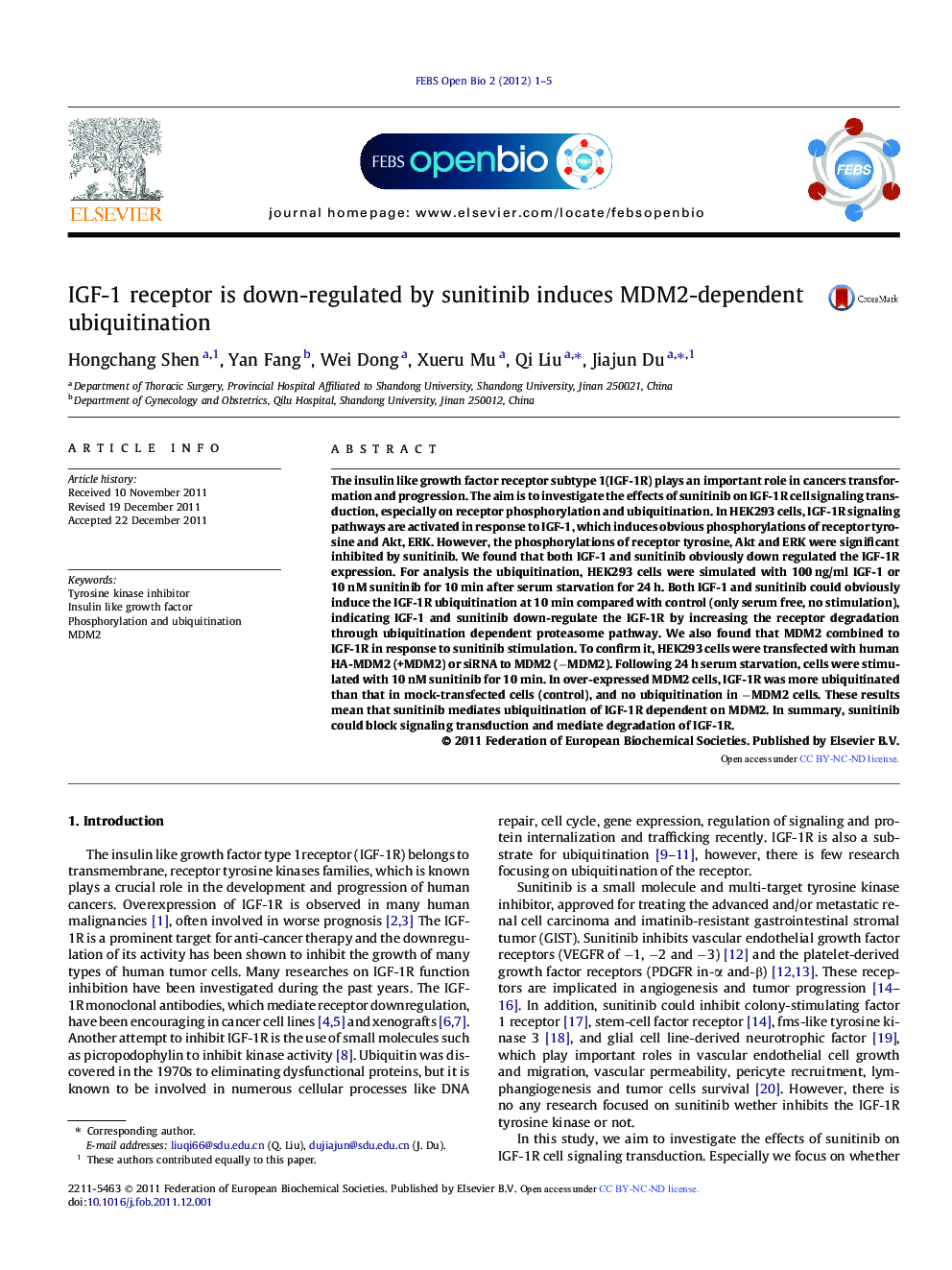| Article ID | Journal | Published Year | Pages | File Type |
|---|---|---|---|---|
| 1981832 | FEBS Open Bio | 2012 | 5 Pages |
Abstract
The insulin like growth factor receptor subtype 1(IGF-1R) plays an important role in cancers transformation and progression. The aim is to investigate the effects of sunitinib on IGF-1R cell signaling transduction, especially on receptor phosphorylation and ubiquitination. In HEK293 cells, IGF-1R signaling pathways are activated in response to IGF-1, which induces obvious phosphorylations of receptor tyrosine and Akt, ERK. However, the phosphorylations of receptor tyrosine, Akt and ERK were significant inhibited by sunitinib. We found that both IGF-1 and sunitinib obviously down regulated the IGF-1R expression. For analysis the ubiquitination, HEK293 cells were simulated with 100Â ng/ml IGF-1 or 10Â nM sunitinib for 10Â min after serum starvation for 24Â h. Both IGF-1 and sunitinib could obviously induce the IGF-1R ubiquitination at 10Â min compared with control (only serum free, no stimulation), indicating IGF-1 and sunitinib down-regulate the IGF-1R by increasing the receptor degradation through ubiquitination dependent proteasome pathway. We also found that MDM2 combined to IGF-1R in response to sunitinib stimulation. To confirm it, HEK293 cells were transfected with human HA-MDM2 (+MDM2) or siRNA to MDM2 (âMDM2). Following 24Â h serum starvation, cells were stimulated with 10Â nM sunitinib for 10Â min. In over-expressed MDM2 cells, IGF-1R was more ubiquitinated than that in mock-transfected cells (control), and no ubiquitination in âMDM2 cells. These results mean that sunitinib mediates ubiquitination of IGF-1R dependent on MDM2. In summary, sunitinib could block signaling transduction and mediate degradation of IGF-1R.
Related Topics
Life Sciences
Biochemistry, Genetics and Molecular Biology
Biochemistry
Authors
Hongchang Shen, Yan Fang, Wei Dong, Xueru Mu, Qi Liu, Jiajun Du,
